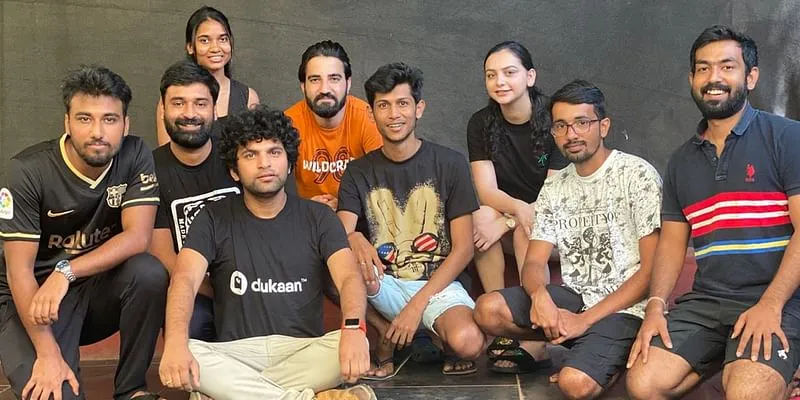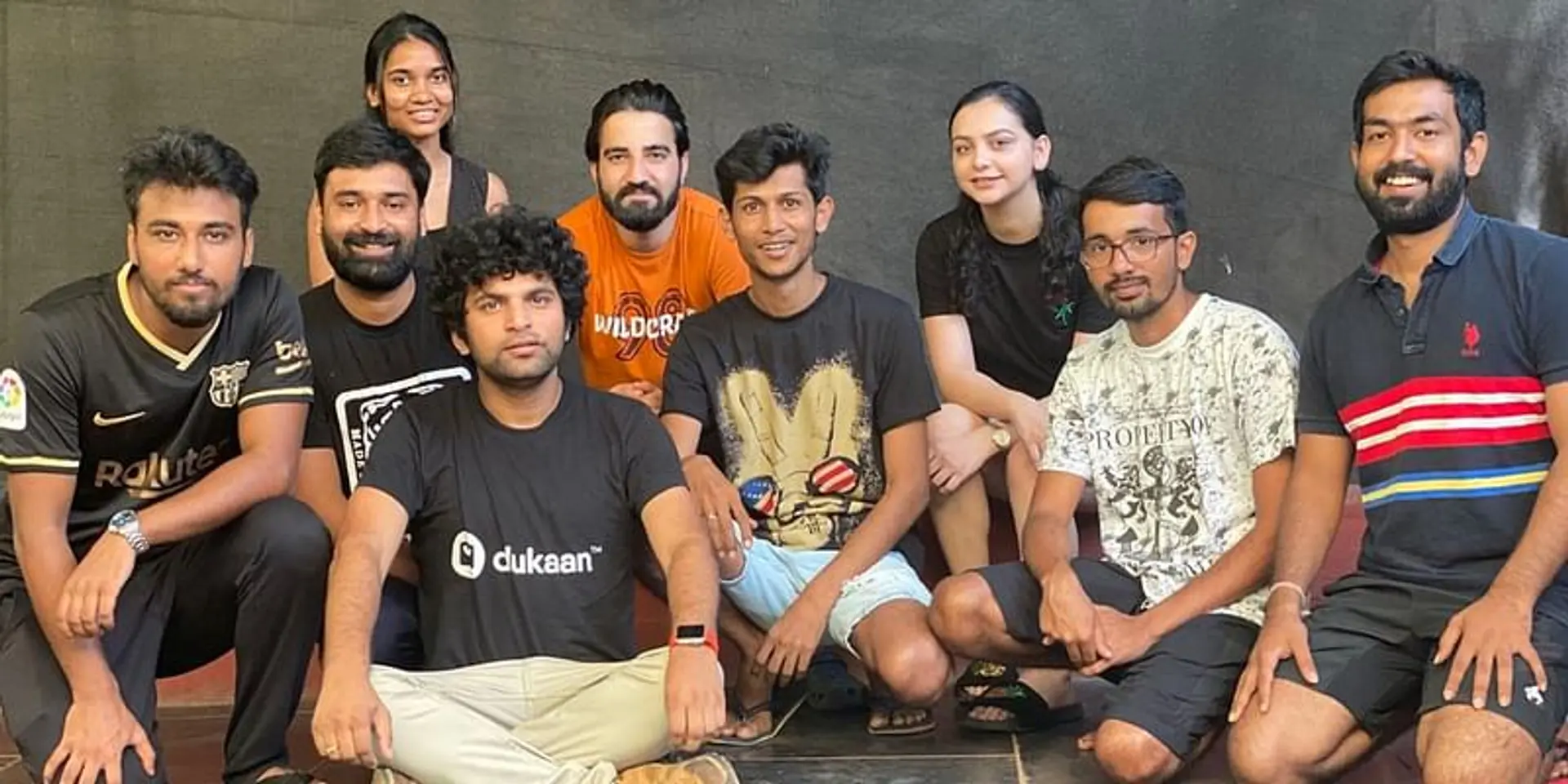This SaaS startup is helping 3M SMBs open their mobile ecommerce ‘Dukaans’
Founded in May 2020, Bengaluru SaaS startup Dukaan is helping SMBs across Tier III cities open mobile-first ecommerce sites on its platform.
Everyone must have heard of Canadian ecommerce company Shopify that allows startups to launch ecommerce channels on its platform. However, in India, with the explosion of various brands, there is a dire need for a platform that allows companies to set up a mobile-first ecommerce site in a matter of seconds.
Enters — a Bengaluru-based Software-as-a-Service (SaaS) startup.
Founded in May 2020 by Suumit Shah, Subhash Choudhary, Anurag Meena, and Kaustub Pandey, Dukaan allows anyone to set up an ecommerce website on its platform within 30 seconds of using its app.
"You don’t need to have any technical knowledge to start using Dukaan. Dukaan is a platform, where you can manage all your back store operations digitally — you can set up your delivery charges, manage orders, create banners/WhatsApp stories, offer dining with QR codes, etc.," says Suumit Shah, Founder of Dukaan, tells YourStory.
The inception
Co-founders Suumit and Subhash were Facebook friends and met in person in 2012 at a conference, where Suumit convinced Subhash to start a business together. They first started a service agency that did very well. However, scaling services businesses ultimately proved difficult for the duo. They then decided to build products.
Suumit has earlier worked with Tiny Owl. Along with Subhash, in 2014, he founded Risemetric and Rankz.io. Kaustub, too, was one of the co-founders at Rankz.io. Around 2018, Suumit met Anurag Meena — an IIT -Bombay graduate — through a common friend, and in May 2020, Dukaan was started by the four entrepreneurs.
"Dukaan was kind of a hackathon project for me. But, seeing this massive response from the sellers made me believe that Dukaan was a once in a lifetime opportunity to build something which could actually impact the lives of millions of people positively," says Suumit.

Dukaan team
The business
Dukaan has an active seller base of over three million, including people who are teachers, service providers, and even outstation cab drivers. The SaaS platform hosts businesses and brands across 200 different categories.
Each category has unique characteristics and players, catering to different needs, including solving for payments with the UPI stack, book-keeping, inventory management, and more.
"We are trying to solve dhandha for them, answering the fundamental question of dhandh aaise kaise badhega?" says Subhash, adding, that the startup has found a way to increase their business.
In order to use the platform, a user needs to instal the Dukaan app and start uploading the inventory (products/services). Post this, the user gets a unique store link, which he can share with his customers on social media, especially on WhatsApp, and can start accepting online orders.
All these processes happen under an average time of eight minutes, compared to the traditional approach, which takes months of back and forth for a sub-par store and involves hiring a developer.
"There are international platforms that are not really built for a country like India, where more than 95 percent of small businesses don’t have access to a desktop or computer," says Suumit.
To set up Dukaan, Suumit posted about the startup and its advantages in a community of around 5,000 members on Facebook, which majorly had youth from Tier-III cities in India. In fact, on day one, he was able to get a few hundred stores created.
Among them was a Dukaan user, whose ecommerce store was able to sell a few smartphones.
"The customer called me and he asked me “how much should I pay you for using your app?” and I said Rs 2000 per year, randomly. The customer paid that amount within 15 minutes after the call on Google Pay. In the next 48 hours, we managed to get over Rs 70,000, selling subscriptions of Dukaan," Suumit adds.
The co-founders have invested less than Rs 25 lakh in the startup. Owing to its simplicity, within nine months of launch, it has raised $6 million in seed funding from Lightspeed Partners India and Matrix Partners India. Angel investors, including Kunal Shah, Ryan Hoover, Haresh Chawla, Jiten Gupta, and Prabhkiran Singh have also invested in the SaaS startup.
However, it has not yet monetised the platform as it was launched amidst the COVID-19 pandemic. The startup is also focused on educating sellers and is scaling up its retention metrics by providing tools that can ultimately help its users grow their revenue digitally.
Dukaan works on a fixed SaaS subscription fee and also charges its users on premium themes and plug-ins.
The startup has built its tech on Python and Django REST framework. It has scaled quickly into a large-scale distributed system, spanning across over two dozen different services.
While the core backend is powered Python, the frontend for its users is built using Django React. Its Android app uses native Java and the buyers and sellers can talk to each other using Django REST, APIs and web sockets.
Moving forward
According to Avendus Capital, by 2025, the direct-to-consumer business will be Rs 750,000 crore opportunity in India, which is likely to give a boost to startups like Dukaan.
The SaaS startup competes with the likes of GoFrugal and .
"For the core product, we want to get at least 15 million merchants and customers to start using Dukaan for online ordering by the end of the next quarter. Besides, we will be exploring ways to help our merchants with their online payments, fulfilment, and back store operations side through various product offerings, " says Suumit.
Edited by Suman Singh





![[Startup Bharat] This automotive B2B ecommerce platform is making car maintenance affordable and easy](https://images.yourstory.com/cs/2/70651a302d6d11e9aa979329348d4c3e/PIC1-teamphotoduringafestival2-1611821338278.jpg?fm=png&auto=format&h=100&w=100&crop=entropy&fit=crop)




